Speeches Shim
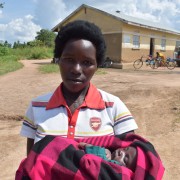
Eunice Acen was married and pregnant with her first child at age 18. Like others in her community, she believed disclosing her pregnancy early would result in a miscarriage. As a result, Eunice decided not to receive antenatal care and, sadly, her fears came true: she miscarried and had to be hospitalized because of complications. “If I had attended antenatal care, these complications could have been avoided,” Eunice says as she recounts the painful ordeal of losing her first pregnancy.
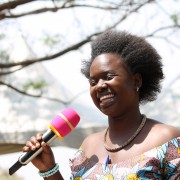
The roads that crisscross northern Uganda’s Lamwo district connect a network of villages set against a vast expanse of land and sky. Far from the hustle of the nearest cities, the air is still and quiet enough that conversations can be interrupted by the sounds of passing lizards and thoughts distracted by the birds soaring overhead. Uganda’s abundant natural resources, fertile soil, stable government, and steady economic growth present distinct opportunities for its population. Despite this, large swathes of the population remain vulnerable, particularly here in the north. This is one of the poorest regions of the country, still recovering from decades of turmoil and civil war. The school dropout rate is high, as are instances of early marriage, teenage pregnancy, and alcoholism.
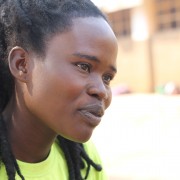
“Like grass, we are growing greener and higher. We are young and full of energy. We are ready to make money and change our lives.” This is how 22-year-old Amimo Chan Pasca from Palabek Kal parish in the northern Uganda district of Lamwo describes her group. The group known as the Green Generation Girls was formed in August 2019, after the girls attended USAID-supported mentorship camps aimed at empowering adolescent girls and young women who dropped out of school to dare and dream of a better future.
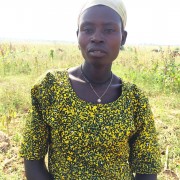
With an education that abruptly ended when she was 15, and with no prospects for long-term employment beyond providing intermittent casual labor on other people’s farms, 27-year-old Phyllis Chelagant from Kween District in eastern Uganda was barely able to provide the basics for herself and her three children aged nine, seven, and four. The money she made from working as a casual laborer was not enough, leaving Phyllis to rely on others for sustenance. The turning point in her life came after a conversation with Victor Saikwa, a 25-year-old farmer who doubles as a youth agent with Sebei Farmers’ Savings and Cooperative Organization (SACCO).
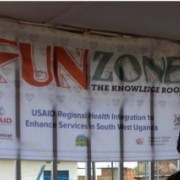
She has had a steady partner for eight years who is currently working in Kenya. They are a discordant couple. Ninsiima is living with HIV. She is a walking encyclopedia of information related to HIV. “I speak in specifics and I know the reality,” says Ninsiima as she opens her purse to point out the condoms and lubricator she shares with other girls.

Comment
Make a general inquiry or suggest an improvement.